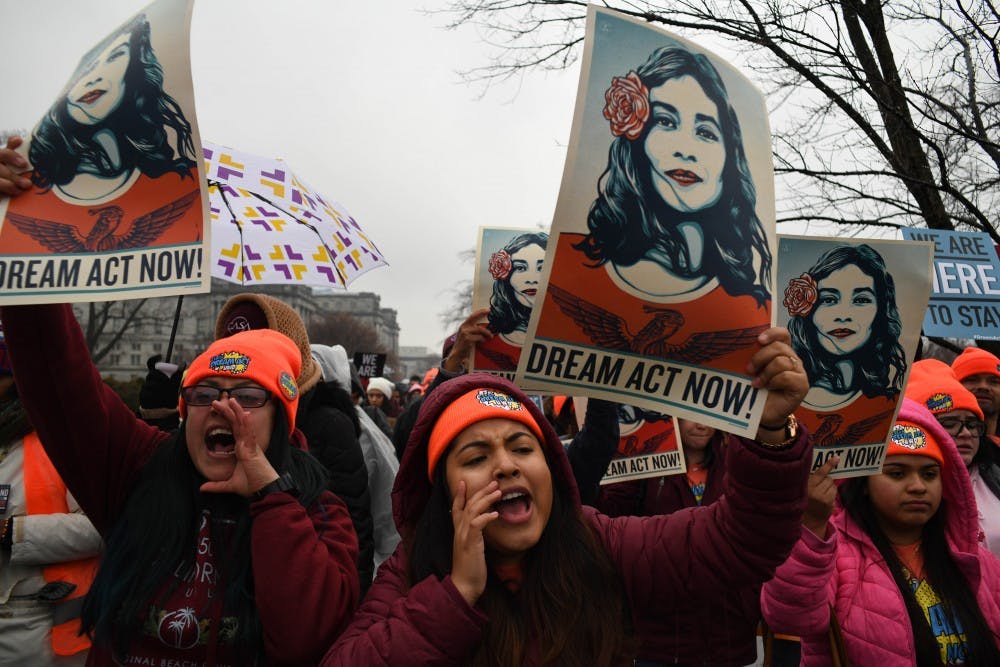Earlier this month the Deferred Action For Childhood Arrivals program was set to expire. As with many of Trump’s directives, the courts intervened. For now, DACA recipients must continue to live in limbo.
Earlier this month USC began sending out it’s last wave of decisions letters. As March comes to a draw, #UofSCYes posts will wind down. By now everyone who applied here should know the answer.
Students of all sorts apply from all sorts of places, those garnet banners around campus are always bragging about that. However, there is one group of students who don’t tend to apply — DACA recipients. And one group of students who can’t even apply — illegal immigrants.
South Carolina is one of only two states in the nation that completely bars unlawful students from attending public colleges. As DACA students have “lawful presence” they can apply to schools like USC. However, they are still prohibited from receiving in-state tuition. Not only that, but they’re also ineligible for federal student aid from the FASFA but still have to sign up for selective service regardless.
For most students, in order to qualify for in-state tuition, they need only live in South Carolina for one year. DACA students, who very well may have lived in South Carolina their entire lives, are forced to pay out-of state tuition no matter what. Which at USC is more than double that of in-state tuition.
Along with that, students who are U.S. citizens but whose parents aren’t have additional hoops to jump through. If you’re a dependent, meaning you provide less than half of your own income, your residency is based on that of your parents. Which is problematic if you’ve lived with your family in South Carolina your entire life but cannot legally prove that. Meaning these students have to trudge through an appeals process.
In-state tuition is a huge factor in where students decide to attend college. I personally know several DACA recipients who elected not to even apply to state schools in the South. Not many families are equipped to pay $45,000 a year for higher education. Instead, they opted to apply to private schools which could offer the aid they needed.
South Carolina is one of six states in the U.S. that prohibit DACA students from receiving in-state tuition at public universities. There is no federal law mandating this. It is entirely up to the states to choose how they handle dreamers, and South Carolina has chosen spite. Other states treat DACA recipients like regular U.S. citizens.
DACA recipients deserve in-state tuition, and South Carolina and the university need to catch up to the rest of the nation. Our very own Lindsey Graham's proposed DREAM Act includes propositions to ensure deserving students can claim residency for the only home they’ve ever known. Deporting nearly 700,000 people is not remotely feasible. Those resources might as well be used to jail everyone who jaywalks.
If we want students brought here as children illegally and raised in America their whole lives to assimilate and contribute, we need to allow them access to higher education. As it stands, the state’s current policy is a huge barrier that turns away prospective students.

